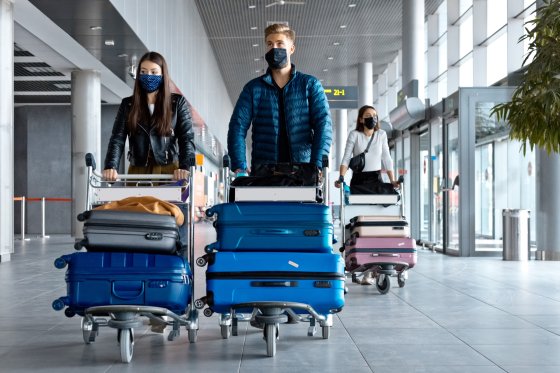| 
Could the rise of BA.4 and BA.5 COVID cases lead to a summer surge? Canada is seeing an increase in several fast-spreading COVID-19 variants that have been fuelling new outbreaks in the United States and Europe, Canada's top doctors said Friday. The BA.4 and BA.5 strains of the virus, which are subvariants of Omicron, have been detected in Canada since May. The BA.2.12 subvariant has also been showing growth in the country since March. On Friday, Canada's chief public health officer, Dr. Theresa Tam, made note of a rise in the number of these cases in Canada in recent weeks and warned that – although COVID-19 indicators have been trending downward across most the country in recent weeks – these subvariants could trigger a resurgence of the virus over the summer. Find more details in this story from Teresa Wright. Monkeypox: Canadians worried, but most confident in health response, poll says A new Ipsos poll conducted exclusively for Global News suggests more than half of Canadians are concerned about outbreaks of the monkeypox virus in Canada. Far more – almost 70 per cent – are confident Canadian officials will contain the spread of the virus in Canada. Seniors expressed the highest levels of concern and were more likely to be following news about outbreaks, the poll suggests. And while a majority of respondents overall – 66 per cent – said they believe Canadian officials are working quickly enough to contain monkeypox in Canada, not every region had the same level of trust in how governments and health authorities are managing the virus. Read more about the results of this poll in this Global News story. As of Friday, the Public Health Agency of Canada (PHAC) reported the number of monkeypox cases in the country had grown to 168. This includes 141 cases in Quebec, 21 cases in Ontario, four in Alberta and two in British Columbia. 
Canada to update 'fully-vaccinated' definition, lifts travel vax mandate  Earlier this week, the federal Liberals announced plans to change the government’s definition of what it means to be fully protected against COVID-19 to reflect advice that a number of health experts have been recommending for months. Currently, federal employees are considered fully vaccinated if they have two doses of one of Health Canada's approved vaccines. Canada’s chief public health officer, Dr. Theresa Tam, has recommended that any official language encouraging Canadians to be vaccinated should not emphasize a specific number of doses, but rather say Canadians should be "up to date" with their COVID-19 vaccines due to waning immunity from just two doses over time. Health Minister Jean-Yves Duclos said this week the federal government plans to implement this policy change in the coming months. This news came as Ottawa also announced it was suspending its mandatory COVID-19 vaccination policy for air and rail travellers, effective June 20, thanks to declining infections across Canada. Experts say the move has come at the right time as cases are declining, but they also stress the need to continue masking on trains and planes to prevent future waves. 
Q: When I was younger I got the smallpox vaccine. Am I protected from monkeypox? This is a somewhat challenging question to answer for one main reason: not enough research has been done to give a definitive answer. In the African setting, where monkeypox has been circulating for years and is endemic, the smallpox vaccine provides about 85 per cent protection against monkeypox, says Dr. Don Vinh, a microbiologist at McGill University in Montreal. But the immunity you get from the smallpox vaccine decreases with time, he added. And time is a key consideration when it comes to this question. “If anybody got a smallpox vaccine as part of the routine immunization program in Canada, that was well over three or four decades ago. We’re talking about 1980, max, but probably more in 1972 or 1973. So who knows how well that immunity is going to perform over that pause of several decades?” Another important consideration is the fact the smallpox vaccine being used now to treat monkeypox is not the same as the one used prior to 1980, when the World Health Organization declared smallpox eradicated. That doesn’t mean the new vaccine is more or less efficient than the previously-used one, but they are different and the long-term effectiveness of both just haven’t been studied to the same extent, Vinh said. “So for all of these factors and the fact that right now (the virus is) circulating in a very defined at-risk community, it isn’t the time for everyone to start going to their local clinic to try and get a monkeypox or a smallpox vaccine,” he said, referencing the fact the vast majority of people infected as part of the current outbreak of the virus in Canada are men who have sex with men. Vinh suggests anyone who might be concerned should stay informed of any outbreaks that might be happening in their communities and what experts – scientists and medical professionals – are saying about the risks. |
No comments:
Post a Comment